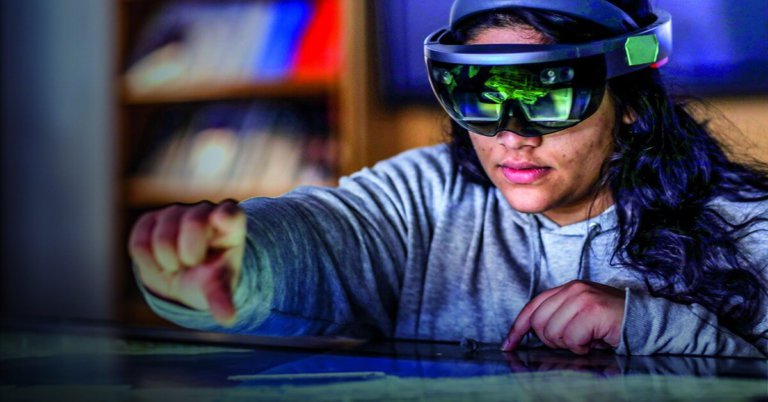
Within the span of four years, Aqeb Hamdan has experienced what it’s like to work in start-ups and big companies. He has gotten the chance to contribute to various products, applying what he learned at Dalhousie University as a Bachelor of Computer Science student. With the guidance and support of his colleagues, he improved both his technical know-how and soft skills.
Towards the end of his degree, he landed a four-month internship at Shopify Ottawa as an Android developer. Here, he gained more skills and even more great co-workers. Before his internship was even over, Aqeb was offered a role as a full-time Android developer at AffinityClick Inc, the mobile development company behind Hushed, a top-grossing app in Canada, US and 10 other countries.
Aqeb’s journey exemplifies the typical pathway for every student at Dalhousie University: Higher education to fulfilling and exciting employment.
Dalhousie University makes this possible by emphasising hands-on experience. Though its co-operative programmes (co-op), students are given opportunities to apply classroom learning in a professional workplace. Students alternate semesters of academic study with semesters of full-time, paid employment in positions related to their discipline/career interests.
Aqeb said: “My favourite part of my degree was the exposure to the real-world work that we got through our co-op terms”.
Before starting their co-op terms, students are introduced with a co-op seminar course that helps them with crucial skills such as how to write a resume, cover letter as well as simple do’s and don’ts during job interviews.

Dalhousie University
Aqeb explained: “There were various courses in the degree that helped with communication and interpersonal skills. These skills help each individual to polish their personality which increases the likelihood of employability.”
But what Aqeb described represents only a fraction of the benefits students gain from such experiential learning opportunities.
The combination of classroom study with hands-on experience is one of the most effective ways to turn students into knowledgeable professionals in their field of study. Through co-op, students get to apply classroom theory to a practical environment, learn from experts in the field, uncover strengths, develop a network of professional contacts, earn a paycheque and so forth.
Co-op programmes fall under the category of experiential learning, ie. learning by doing.
By using inquiry, problem-based and project-based learning, it helps students absorb and remember complex material better, exposes them to scholarship at the highest level from early in their academic careers, become engaged citizens and so forth.
“Some personal strengths that I discovered were determination, dedication, creativity and enthusiasm. With each co-op term, I was able to work on various products which helped me polish these skills including my technical and soft-skills,” Aqeb said.
Dalhousie University’s location in Halifax is what makes the perfect setting for tech enthusiasts like Aqeb to kickstart their careers.
This fast-growing ocean city has been called the “top tech centre in Atlantic Canada”. From big corporations to tech start-ups, everyone wants a slice of what this dynamic innovation hub has to offer. Unsurprisingly, tech talent wouldn’t stop arriving – over the last five years, there has been a nearly ten percent increase in tech workers, bringing the number today to more than 10,000.

Dalhousie University
“Halifax is booming with new startups and big tech companies like IBM. Canada has a big tech sector in general and companies are always looking for interns, co-op students or full-time workers. You are guaranteed to learn wherever you go,” said Aqeb.
Halifax is located in the broader Nova Scotia province, itself a powerhouse of education, business and entrepreneurship. Its ICT industry alone accounts for 8.2 percent of Nova Scotia’s business sector output.
In 2013, this was where IBM chose to open their first Canadian Customer Innovation Centre and where Ernst & Young launched their Canadian Centre for Advanced Analytics and Global Centre of Excellence in Robotic Process Automation.
Dalhousie University’s Faculty of Computer Science sits in the centre of all this action.
Interested applicants can choose between two flexible undergraduate programmes: the Bachelor of Computer Science and Bachelor of Applied Computer Science.
The first is a more broad-based and traditional computer science program, providing a deep understanding of the theory, design and application of technology.
The second combines a broad understanding of technology with management and the in-demand skills employers look for such as communications and project management.
“The courses at Dalhousie helped improve various skills such as critical thinking, communication, collaboration, decision making and leadership. I had the opportunity to work with other amazing students and professors that not only improved communication skills but also provided a platform for students to develop new skills. Students get to collaborate on different ideas and visions that improve various interpersonal skills,” according to Aqeb.
Co-op options are available in both, allowing students to earn extra money while gaining valuable work experience with employers in Halifax and other major Canadian cities.
The comprehensive courses, co-op opportunities and different specialisations were the top reasons Aqeb chose to study at Dalhousie University. And the university has more than lived up to his expectations.
Follow Dalhousie University Faculty of Computer Science on Facebook, Twitter, Instagram, and LinkedIn
Liked this? Then you’ll love…
Top UK universities that are moulding tomorrow’s computer science trailblazers
Get valuable work experience while studying in the booming tech hub of Halifax, Canada







